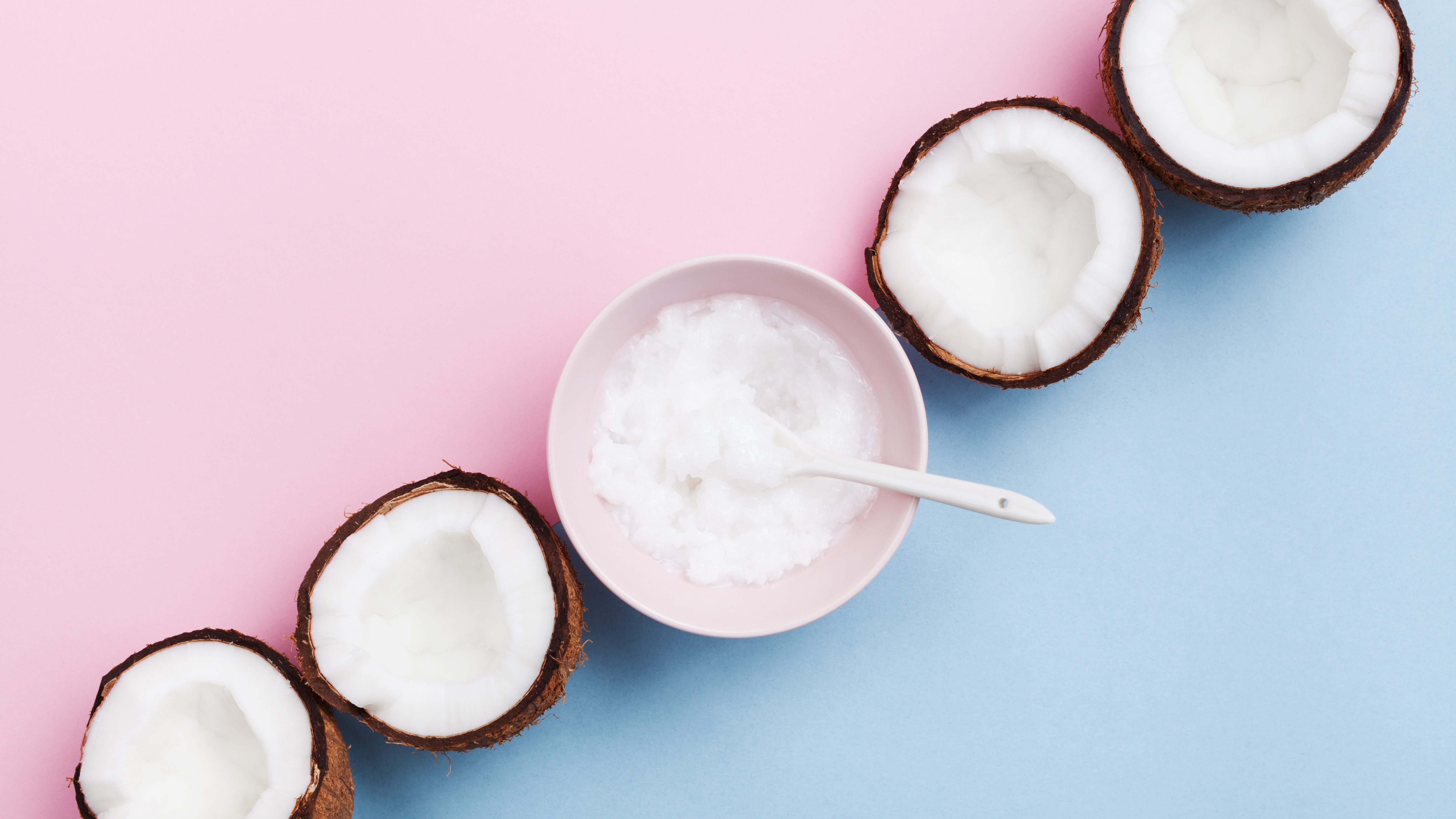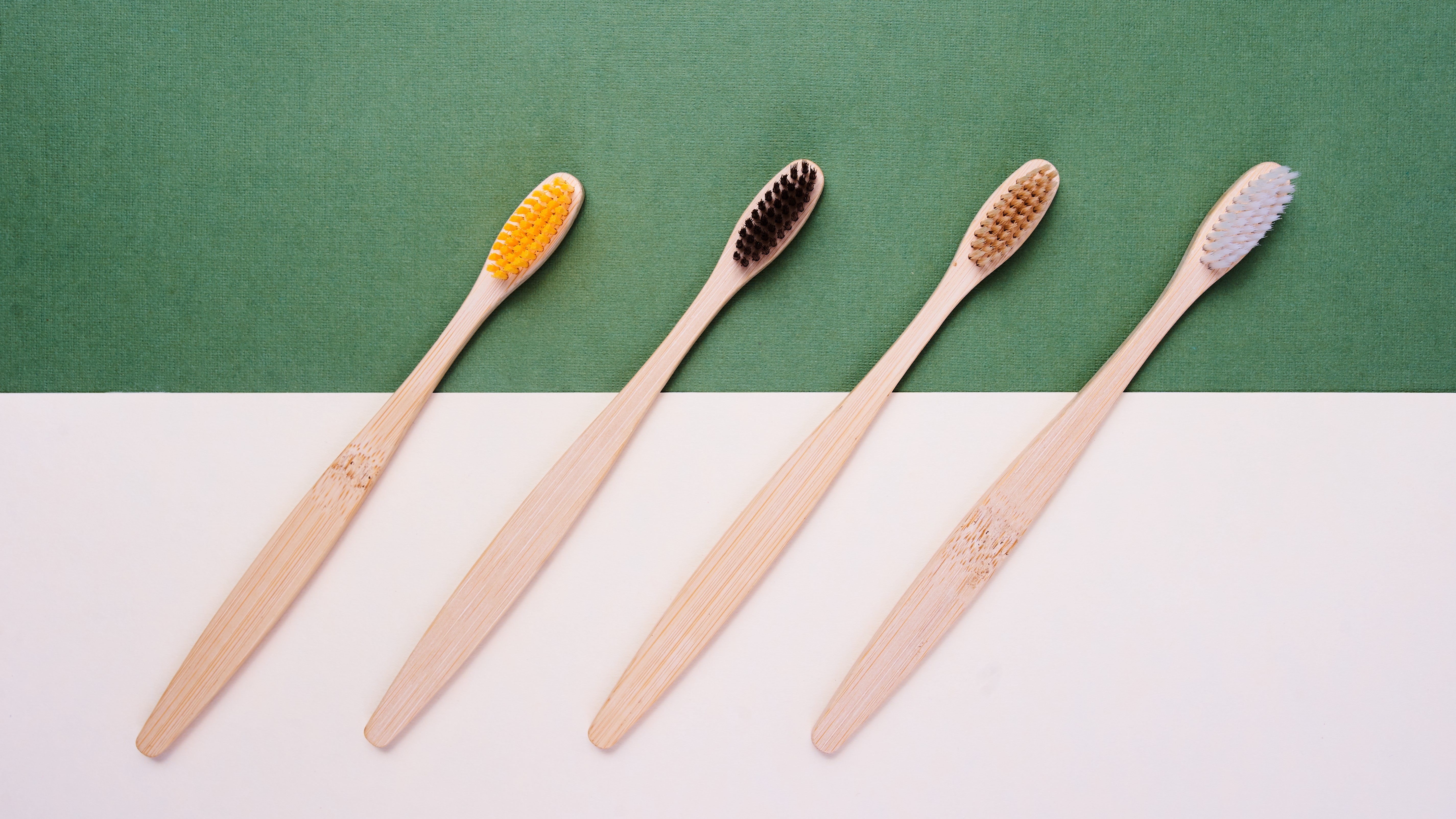The benefits of oil pulling for your smile— and how to do it at home
Have you heard of oil pulling? It’s an ancient oral care technique and it's making a comeback


Looking for ways to improve your oral health? Cue oil pulling, the ancient technique that's making a comeback. We've spoken to the experts to give you the complete guide to the method, it's benefits and how to do it safely at home.
Oil pulling has been around for millennia. The alternative practice involves using vegetable oil like mouthwash to remove harmful bacteria and reduce inflammation in the mouth. You may already take great care of your teeth—using the best electric toothbrush, flossing once a day, and avoiding coffee when undergoing teeth whitening. But by practicing oil pulling, you could take your dental hygiene to a whole new level.
“Oil pulling originated in India around 3000 years ago,” says Dr Rashmi Byakodi, BDS and editor of Best for Nutrition. People turned to oil pulling for treating oral problems and for strengthening gums, teeth, and jaws Dr Byakodi tells us. “Sesame oil is the most traditional, and it’s the most studied. But people have seen good results with coconut oil as well,” says Dr Paul Springs, a prosthodontist at Timeless Dentistry. You can use virtually any type of vegetable oil, including olive oil, sunflower oil, and more. It just depends on which one tastes the best to you.
Here we explore the benefits of this ancient practice, how to do it at home, and how to make it part of your every day just like your skincare routine.
The benefits of oil pulling
“In oil pulling, you use an oil like a mouthwash, which removes the harmful bacteria from your mouth. The oil naturally has the property of reducing inflammation and bacteria, which promotes oral health,” says Dr Byakodi.
Dr Byakodi explains the oral health benefits of oil pulling include:
- “It helps to kill harmful bacteria—a 2016 study by the Department of Conservative Dentistry and Endodontics Army College of Dental Sciences revealed that it significantly reduces the number of bacteria found in saliva.”
- “It reduces bad breath—according to a study conducted in 2011 by the Department of Pediatric Dentistry at Meenakshi Ammal Dental College, found oil pulling works equally well as chlorhexidine as an effective remedy for halitosis.”
- “It enhances the luster of teeth—oil pulling whitens your teeth and removes plaque.”
The benefits of oil pulling may also extend past oral health, according to Dr Byakodi. “Some studies such as that conducted by Department of Community & Preventive Dentistry at Dar Al Uloom University have revealed that oil pulling also reduces the risk of systemic diseases,” she says. “Holistic Ayurvedic medicine considers oil pulling as the cure for many health problems, including diabetes, asthma, and migraines.”
Sign up for the woman&home newsletter
Sign up to our free daily email for the latest royal and entertainment news, interesting opinion, expert advice on styling and beauty trends, and no-nonsense guides to the health and wellness questions you want answered.

How to oil pull—a step-by-step guide
Oil pulling is a simple process not unlike using mouthwash.
Here's how to do it:
1. Put a tablespoon of cooking oil in your mouth
If you use coconut oil, be sure to lightly melt it beforehand, as it is solid at room temperature. Test it with the tip of your finger before putting it in your mouth to make sure it’s not too hot. For any other oil, just pop it in your mouth at room temperature.
2. Swish the oil around in your mouth for 15-20 minutes
It sounds like a long time, but that’s how you get the desired benefits. It might take some trial and error to find an oil you like the taste of enough to keep it in your mouth this long. To make time go by faster, flip on the TV or read one of the best books of 2021 while you swish.
3. Spit the oil into the garbage
Be sure to spit out the oil when you’re done swishing—don’t swallow it. Consuming a tablespoon of oil on a nightly basis is not ideal for your health, especially after the oil extracts bacteria from your teeth. Spit it into the garbage, not your sink, as oil can clog the pipes.

Should you brush your teeth after oil pulling?
Since oil pulling is such an easy process, there’s not much preparation of aftercare you need to be aware of.
There’s some debate on whether or not you should brush your teeth right after oil pulling. Some people prefer to do so because it gets rid of the oily taste in their mouths. But some experts argue you shouldn't brush your teeth right after oil pulling, as it disrupts the rebalancing of the oral microbiome and washes away good bacteria, defeating the purpose.
Whatever you decide, Dr Springs stresses, “The most important thing to remember is if you choose to oil pull, it's strictly an addition to your brushing and flossing routine. It cannot replace brushing or flossing.” Whether you brush or floss your teeth before or after oil pulling, make sure you do those important steps of your oral care routine every day.

Is oil pulling worth it?
Swishing oil in your mouth for 20 minutes on a nightly basis might not sound appealing to you so is it really worth the effort?
The truth is, it depends who you ask. Some experts swear by oil pulling and its benefits. But according to Dr Springs, “Patients that oil pull don't usually stick with it, because the benefits are not very noticeable, and you can do a lot of things way more impactful for your health in 20 minutes a day.” For example, you could use that 20 minutes to take a light jog around the neighborhood, meditate, stretch, or do a number of other healthy activities instead of oil pull.
Whether or not you decide to try oil pulling depends on your health goals. If you do try it, be sure to follow our step-by-step guide for the best results and make it part of your morning or bedtime routine so you stick to it. Continue to brush your teeth, floss and visit your dentist regularly, too.
woman&home thanks Dr. Paul Springs of Timeless Dentistry and Dr. Rashmi Byakodi of Best for Nutrition for their time and expertise.
Ciara McGinley is a meditation practitioner and health journalist. She qualified as a meditation teacher with the British School of Meditation in 2020 and is the founder of Finding Quiet, a series of classes, workshops and retreats that combine meditation practices and mindfulness techniques to make mindful living realistic in an always-switched-on modern world. She is all about bettering that mind-body connection but believes wellness looks different to everyone.
Ciara is also the former Health Channel Editor at woman&home and has covered all things health and wellbeing for years, from fitness to sleep to relationships.